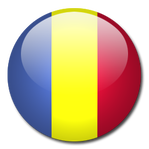International Headteacher
Menu
Full name: The Republic of Chad
Population: 11.5 million (UN, 2011)
Capital: N'Djamena
Area: 1.28 million sq km (495,800 sq miles)
Major languages: French, Arabic
Major religions: Islam, Christianity
Life expectancy: 49 years (men), 52 years (women) (UN)
Monetary unit: 1 CFA (Communaute Financiere Africaine) franc = 100 centimes
Main exports: Cotton, oil, livestock, textiles
GNI per capita: US $620 (World Bank, 2010)
Internet domain: .td
International dialling code: +235
Population: 11.5 million (UN, 2011)
Capital: N'Djamena
Area: 1.28 million sq km (495,800 sq miles)
Major languages: French, Arabic
Major religions: Islam, Christianity
Life expectancy: 49 years (men), 52 years (women) (UN)
Monetary unit: 1 CFA (Communaute Financiere Africaine) franc = 100 centimes
Main exports: Cotton, oil, livestock, textiles
GNI per capita: US $620 (World Bank, 2010)
Internet domain: .td
International dialling code: +235
|
A largely semi-desert country, Chad is rich in gold and uranium and stands to benefit from its recently-acquired status as an oil-exporting state.
However, Africa's fifth-largest nation suffers from inadequate infrastructure and internal conflict. Poverty is rife, and health and social conditions compare unfavourably with those elsewhere in the region. Chad's post-independence history has been marked by instability and violence stemming mostly from tension between the mainly Arab-Muslim north and the predominantly Christian and animist south. In 1969 Muslim dissatisfaction with the first president, Ngarta Tombalbaye - a Christian southerner - developed into a guerrilla war. This, combined with a severe drought, undermined his rule and in 1975 President Tombalbaye was killed in a coup led by another southerner, Felix Malloum. Mr Malloum, too, failed to end the war, and in 1979 he was replaced by a Libyan-backed northerner, Goukouki Oueddei. But the fighting continued, this time with a former defence minister, Hissen Habre, on the opposite side. In 1982, with French help, Mr Habre captured the capital, N'Djamena, and Mr Oueddei escaped to the north, where he formed a rival government. The standoff ended in 1990, when Mr Habre was toppled by the Libyan-backed Idriss Deby. By the mid-1990s the situation had stabilised and in 1996 Mr Deby was confirmed president in Chad's first election. In 1998 an armed insurgency began in the north, led by President Deby's former defence chief, Youssouf Togoimi. A Libyan-brokered peace deal in 2002 failed to put an end to the fighting. From 2003 unrest in neighbouring Sudan's Darfur region spilled across the border, along with hundreds of thousands of Sudanese refugees. They have been joined by thousands of Chadians who are fleeing rebel fighting as well as violence between ethnic Arab and ethnic African Chadians. Chad and Sudan accuse each other of backing and harbouring rebels, and the dispute led to severing of relations in 2006. However, since then, progress has been made towards normalising ties, with the two countries' presidents meeting for the first time in six years in 2010. Chad became an oil-producing nation in 2003 with the completion of a $4bn pipeline linking its oilfields to terminals on the Atlantic coast. The government has moved to relax a law controlling the use of oil money, which the World Bank had made a condition of its $39m loan. |
information provided by www.bbcnews.co.uk

